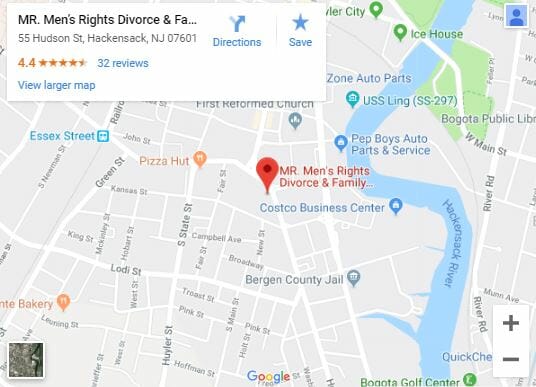
What is the difference between contested and uncontested divorce in New Jersey? The basic difference is that in a contested divorce is that there are issues that need to be resolved. In an uncontested divorce, all the issues have been resolved.
What are some of the issues that must be resolved in divorce? Decisions must be made regarding dividing assets and property; whether alimony will be paid and how much; child support and who pays for college; child custody and visitation; and more.
HOW IS A CONTESTED DIVORCE RESOLVED?
When spouses cannot agree on a single issue or multiple issues in their divorce, the divorce is contested. It will go to court to be litigated. There may be several steps between filing and trial and the Court will give you many opportunities to try and settle issues outside of litigation. They include having your attorneys schedule a 4-way settlement conference with the opposing party and the opposing attorney, attending a matrimonial early settlement panel, economic mediation, and perhaps an intensive settlement conference with the Judge as a last-ditch attempt to avoid trial.
If the divorce proceeds to trial, both sides will present their cases to a New Jersey judge who will hear the evidence and make the decisions on the unresolved issues. Judges review a variety of factors under the law to come to their decisions.
For example, if a judge is deciding how to divide assets and debts between spouses, they will consider the criteria listed in N.J.S.A. 2A:34-23.1 to arrive at a decision. Some of the factors include the following:
- Length of the marriage
- The marital standard of living
- Ages and health of both spouses
- Assets and property each spouse brought to the marriage
- Each spouse’s economic circumstances at the time of divorce
- Income and earning capacities of the parties
- Prenuptial or postnuptial agreements regarding property
- Whether a spouse contributed to the education or earning power of the other.
Once the court decides the issues, they will become part of your final divorce decree. The decree or judgment of divorce is the official document that dissolves your marriage.
99.9% of all divorce cases start out as contested. Even if you think you resolved all the issues with the other spouse, there are probably issues you didn’t know you needed to resolve to make it a comprehensive divorce agreement to prevent future disputes. You don’t want a divorce agreement to be silent on some or all of certain issues as you would just be inviting future litigation.
Throughout the divorce process, the mission is to negotiate and come up with a compromised resolution on the issues. Although the compromise may not be ideally what either you or your spouse want, at least you controlled the outcome instead of a Judge who doesn’t know you or your family well or what plans you have for the future. Plus, having a Judge decide is not only time-consuming procedurally as it is a very formal process with a lot of rules to adhere to submit your evidence and witnesses, but also very costly in legal fees.
WHAT HAPPENS IN AN UNCONTESTED DIVORCE?
Many divorce cases start out as contested divorces. Sometimes spouses who begin the process unable to agree on issues that must be resolved to end the marriage can reach agreement with the help of their attorneys, experts, or mediators. When they are able to successfully come together on all the issues, the divorce becomes uncontested, which is usually beneficial to both spouses because although the settlement was a product of extensive negotiation and compromise, at least it was within your control.
An uncontested divorce allows for control over the things that are most important to you and that will affect your life far into the future. You and your spouse agree on the terms rather than giving the decision-making power to a judge. Uncontested divorces are also typically less expensive and can be resolved more quickly.
Even if you and your spouse are very amicable and were able to arrive at agreement about your divorce issues between yourselves, it is in your interests to have your attorney review the agreement to ensure that your rights are protected and you didn’t miss any issues. Once it is reviewed by your lawyers, you will have it signed and notarized.
When you present your marital settlement agreement to the judge and it is approved, it will become part of your final divorce decree. So be sure you completely understand and are comfortable with all the terms of your settlement agreement.
STEPS TO FILING FOR DIVORCE
Whether your divorce is contested or uncontested, there are rules and procedures for filing. You or your spouse must have been resident in the state for at least one year, unless you are filing on adultery grounds. If you file on adultery grounds the minimum residency requirement is six months. You must also file in the county where you live, or where your soon-to-be-ex spouse resides.
You must choose a ground for ending your marriage when you file. Most people file on no-fault grounds by stating that they have irreconcilable differences, which means you do not have to show proof that your spouse did something to cause the breakup of the marriage.
There are also divorce cases where it may be advantageous to file on a fault ground. However, if you file on a fault ground, you may be guaranteeing yourself a contested divorce as your spouse may not readily admit to their alleged wrongdoing, and you’ve accomplished nothing but inciting a high level of emotional conflict, making it less likely for anyone to be reasonable in a settlement. There are exceptions to this theory, especially if you are seeking custody based on an egregious situation. Your attorney can advise you whether there is any reason to file on a fault ground. In addition to the previously mentioned adultery, fault grounds in New Jersey include:
- Desertion
- Extreme cruelty
- Alcohol or drug addiction
- Institutionalization for mental illness
- Imprisonment
- Deviant sexual conduct.
You must also tell the court whether you are filing for an uncontested or contested divorce. After filing the paperwork and paying the filing fees (including a parent education fee if you have children), the divorce complaint needs to be served on your spouse within 35 days of filing and it cannot be done by you. There are specific rules such as hiring a process server to serve or the sheriff’s department.
CALL A TRUSTED HACKENSACK DIVORCE LAWYER FOR HELP
No matter how a divorce progresses, whether it is uncontested or contested, it can be very stressful. You may worry about losing assets and property, the effects divorce has on your business, not having enough time with your children, and a whole host of other concerns.
The respected attorneys at [MFR] Men’s & Fathers’ Rights Divorce Lawyers can help you navigate the process and arrive at the most satisfactory outcome for your situation. We are especially focused on handling high-net-worth divorce cases and are highly skilled at negotiating and litigating the results that our affluent clients are seeking.
Reach out to our law firm to arrange a consultation by calling (201) 880-9770 today.

